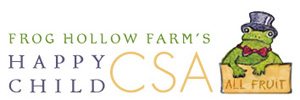As many of you might know, we take supporting beneficial insects very seriously at Frog Hollow. We’ve been working with UC Berkeley Scientist Gordon Frankie for several years now to bolster native bee populations at Frog Hollow. But this work has until now been an organically driven process of adding a few new acres here and there as time and resources permit. In recent weeks, the operation has gotten a serious boost.
We’ve been awarded funding from the National Resources Conservation Service to ramp up our beneficial habitat acreage. We’re adding an additional 21 acres, more than doubling our existing 13. With funding, we’re able to turn what has been a haphazard effort into a cohesive project. Dr. Franke will be selecting all the varieties we plant. With each variety he’ll select for not only their potential to attract the desired pollinator species but their other benefits to our Frog Hollow ecosystem such as adding nutrients to the soil or helping limit soil erosion.
We’ve begun the project by preparing the soil. To break it up and re-incorporate nutrients, we disked the soil. This uses a giant tractor-like machine with several small metal disks which are dragged through the top 3-6 inches of soil. Once the soil’s disked and we have the varieties selected, we’ll broadcast the seeds and wait for the rains to germinate them. Hopefully, by March they will be fully matured at roughly 1-2 feet tall. They’ll offer a home and nutrition for pollinators including native bees, honey bees, moths, and butterflies. By late spring we’ll mow them into the ground, adding their nutrients to the soil and begin the process once again. If this model proves to be successful in attracting the pollinators we need and is manageable, as far as the costs go, Farmer Al plans to continue the expansion. He dreams of having virtually all of our 175 acres planted with beneficial insect habitat.
We’ll let you know how it goes!

 Follow
Follow
